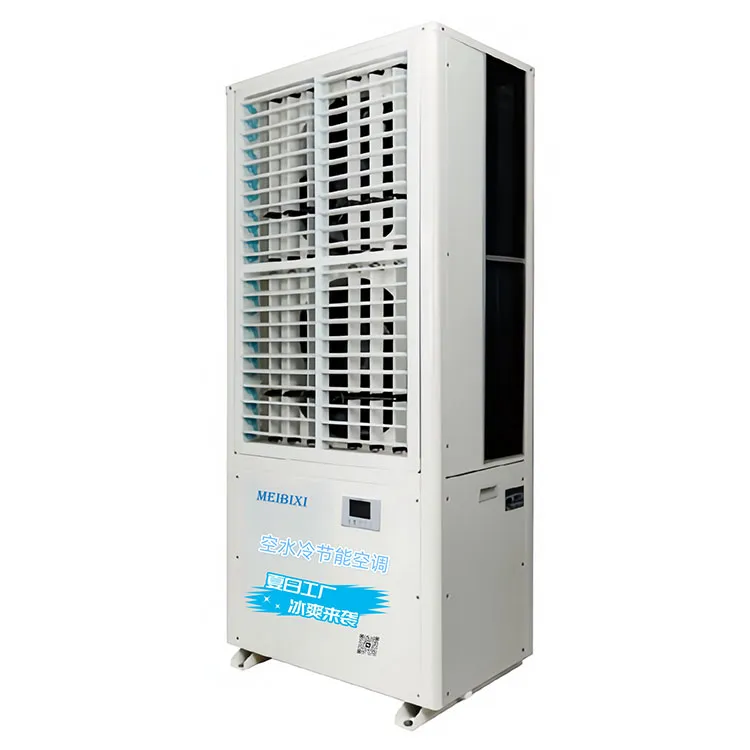Understanding the Importance of Industrial Air Conditioners in Large-Scale Operations
2024-08-10
Industrial air conditioners are essential for maintaining optimal working conditions in large-scale operations. From manufacturing plants to data centers, these powerful systems play a crucial role in ensuring that equipment and personnel operate within safe and efficient temperature ranges. In this blog, we'll explore why industrial air conditioners are vital, how they differ from commercial and residential units, and the key factors to consider when selecting one for your facility.

1. Why Industrial Air Conditioners are Essential
In industrial environments, temperature control is not just about comfort—it's a critical factor in ensuring the safety and efficiency of operations. Here’s why industrial air conditioners are indispensable:
- Equipment Protection: Many industrial processes generate significant heat, which can lead to equipment overheating if not properly managed. Industrial air conditioners help maintain stable temperatures, preventing costly downtime and equipment failures.
- Worker Safety and Productivity: High temperatures can create hazardous working conditions, leading to heat stress or exhaustion among workers. By regulating the indoor climate, industrial air conditioners help maintain a safe environment, boosting productivity and reducing the risk of accidents.
- Product Quality: In industries like food processing, pharmaceuticals, and electronics manufacturing, precise temperature control is necessary to ensure product quality. Industrial air conditioners help maintain the required environmental conditions, preventing spoilage, contamination, or defects.
2. Differences Between Industrial, Commercial, and Residential Air Conditioners
While the basic principle of cooling remains the same, industrial air conditioners are designed to meet the unique demands of large-scale operations. Here’s how they differ from their commercial and residential counterparts:
- Capacity and Power: Industrial air conditioners are built to handle much larger spaces and higher heat loads than commercial or residential units. They are equipped with powerful compressors and fans to provide efficient cooling across vast areas.
- Durability and Longevity: Industrial units are constructed with heavy-duty materials to withstand harsh environments, including exposure to chemicals, dust, and vibrations. This makes them more durable and longer-lasting compared to commercial or residential systems.
- Customizability: Unlike standard air conditioners, industrial units can be customized to meet the specific needs of different industries. This includes options for special filters, advanced control systems, and integration with other HVAC equipment.
- Energy Efficiency: Industrial air conditioners are designed with energy efficiency in mind, as cooling large spaces can be energy-intensive. Many models incorporate advanced technologies like variable speed drives (VSDs) and energy recovery systems to minimize energy consumption.
3. Key Factors to Consider When Choosing an Industrial Air Conditioner
Selecting the right industrial air conditioner is crucial for achieving optimal performance and cost-effectiveness. Here are some key factors to consider:
- Cooling Capacity: The cooling capacity of the air conditioner should match the heat load generated by your operations. This requires calculating the total heat load based on factors like machinery, lighting, and the number of workers.
- Environmental Conditions: Consider the specific environmental conditions of your facility, such as ambient temperature, humidity levels, and the presence of airborne contaminants. This will help you choose a system with the appropriate features, such as corrosion-resistant coatings or high-efficiency filters.
- Control Systems: Advanced control systems can significantly enhance the efficiency and functionality of industrial air conditioners. Look for units with programmable controls, remote monitoring capabilities, and integration with building management systems (BMS) for better oversight and control.
- Maintenance and Support: Industrial air conditioners require regular maintenance to ensure optimal performance. Choose a system from a reputable manufacturer that offers comprehensive support, including maintenance services, spare parts availability, and technical assistance.
- Energy Efficiency: Energy costs can be a significant expense in large-scale operations. Opt for energy-efficient models that comply with industry standards and offer features like VSDs, energy recovery systems, and eco-friendly refrigerants.
Conclusion
Industrial air conditioners are a critical component of modern industrial operations, providing essential cooling to protect equipment, ensure worker safety, and maintain product quality. By understanding the unique demands of your facility and selecting the right system, you can optimize your operations while minimizing energy consumption and costs. Whether you're upgrading an existing system or installing a new one, investing in a high-quality industrial air conditioner is a smart move that pays dividends in efficiency and reliability.
-


